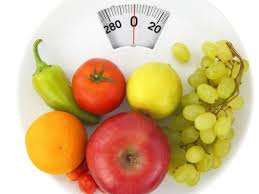Top 10 Reasons You Are Not Losing Weight on a Low-Carb Diet
Written by Anri van Rooyen (BSc Hons Physiology, Health & Fitness Consultant)

Top 10 Reasons You Are Not Losing Weight on a Low-Carb Diet
Science has proven the success of low-carb diets. Initial weight loss is fast, but there may come a time when you reach a plateau (and weight loss becomes a bit slower or even stops) before your target weight is reached. Top 10 reasons (you probably haven’t heard of before) why you’re not losing weight on our low-carb diet even if you’re not doing cheat meals or eat only complex carbohydrates:
- YOU MIGHT BE UNAWARE OF IT, BUT YOU ARE ACTUALLY LOSING FAT
- Losing weight and losing fat are two totally different things and this is where we find most people get confused or are uneducated about the matter. Understanding this is crucial! Especially if you are also doing the correct type of exercise (specifically interval, with strength/weight training) where you’re gaining muscle while losing fat, but the total weight may remain constant.
- Also notice how you feel when you wear your clothes. If you look thinner and your clothes fit better, you are losing fat, no matter what your scale reveals!
For the above reasons, we do a full body composition analysis (called an InBody Assessment) to determine weight loss, fat loss and muscle gain. You cannot just rely on a scale. It is also a good idea to do measurements (if you’re not sure how, we are here to help you) and take photos (before & after). Click here to read more about fat loss vs weight loss
- TOO MUCH OF A GOOD THING IS ALSO BAD
- Are you going a bit nuts?
Nuts are great and super healthy, one problem is if you are having too much, it is not so great. Nuts are very high in fat and contain many calories.
- Are you eating too many fruits?
Eliminate fruit temporarily, you might be eating too much! Fruits contain fructose and may spike blood sugar levels, this may allow spikes in insulin secretion, which in turn leads to fat storage.
- Too much dairy perhaps?
Limit dairy intake to no more than one glass of milk per day and try to have either a cheese portion OR yoghurt as having too much dairy may slow weight loss
- YOU ARE STRESSED OUT 24/7
Long term stress puts the body in constant fight or flight mode and leads to increased cortisol levels. Long term elevated cortisol levels will increase fat storage and lead to cravings and hunger. Learn to relax and unwind. Schedule daily time to relax, it is as crucial as an important meeting. Go for walks in nature, perform relaxation training and meditation. If you are a newbie to relaxation training, refer to Dr Arien’s Stress Solutions book and CD – you might need it more than you know!
- NUTRITIOUS FOOD IS ESSENTIAL
Choosing a low carb diet is more than just limiting carbohydrate intake. Replace your carb intake with nutritious and real foods. First of all, remove all processed foods from your kitchen! These foods include protein bars, crackers, any long life products (2-minute noodles, soup mixes, etc.), basically anything that is not fresh. Banting desserts (like banting brownies) should be limited and used only occasionally as a treat.
The foods you should eat (again not too much):
- Healthy fats – get in enough healthy oils like coconut oil, olive oil, nuts, avocado. Remember heathy fats makes you fuller for longer
- Meat – lean beef, chicken breasts, fatty fish (like salmon or trout)
- Eggs
- Low GL fruit and vegetables – think different colours, different benefits; so consume all the colours of the rainbow as often as possible. Some healthy low GL fruit & veggies incl. broccoli, cauliflower, spinach, baby marrow, berries, apples, plums etc.
- Dairy – live cultured plain full fat yoghurt (no, not low fat anything, because low fat products contain more sugar), full cream organic milk, cheese
- YOU’RE NOT GETTING ENOUGH ZZZ’S
Sleep, sleep and sleep! One of the most important things you can do for not only your weight, but for general health and wellbeing, is to get in enough zzz’s – on average 8 hours in darkness, every night. Most of you probably know that lack of sleep causes weight gain and obesity. The reason being that sleeping too little makes you feel hungry, tired and less motivated to eat well and to exercise. Your cortisol levels can also not decrease if you don’t get enough sleep. If you struggle to sleep, consider using a good quality calcium & magnesium supplement containing calcium, magnesium, boron, vit C, vit D and potassium.
Some sleep tips:
- Sleep in complete darkness, this allows for melatonin (the rest & recovery hormone) to increase and leads to restful sleep
- Relax before you go to bed, stay away from technology. Read, stretch or do relaxation training before going to bed.
- Limit alcohol and caffeine (black tea, coffee)
- ARE YOU DOING THE WRONG KIND OF EXERCISE (IF YOU ARE EXERCISING)?
NEVER make your exercise goal the number of calories you burn while you exercise, this number is usually very low and will not cause weight loss. Your focus should be on increasing muscle mass and decreasing body fat. Therefore, doing cardio every day for an hour is not ideal for fat loss, as it actually burns muscle, therefore decreasing muscle mass. It is important to incorporate strength (resistance) training to increase muscle mass as the more muscle you have, the more fat you will burn on a daily basis as muscle increases the metabolic rate. Exercise is also essential (as most of you probably know) for physical, mental and emotional health. Bonus: it makes you feel awesome, self-confident and overall happy. Who doesn’t feel that?
However, there is a correct way of exercising for fat loss. Interval training combined with strength training is crucial for fat loss:
- Interval training – the king of cardio! Splitting your cardio workout into high intensity periods followed by low intensity periods is the key for long term and fast, fat loss
- Strength/weight training – improves muscle strength, muscle mass and your metabolism
Click here for my presentation on Exercise for Fat Loss.
Don’t forget about low intensity exercises like walking – your body was made to move. So on days where you need a low intensity workout go for a walk, do yoga, or simply perform a few stretches.
If you need some help with exercising (in person or via email) contact me. It is important to also exercise with proper form, technique and breathing. So even if you would just like to come for a consultation for your personal exercise prescription, feel free to do so.
At PlayFunFitness we offer many different options and packages based on your goal and budget (the body achieves what the mind believes).
- YOU MAY HAVE A METABOLIC DYSFUNCTION/ LIFESTYLE DISEASE
It is possible that you might have diabetes or metabolic syndrome (syndrome X) if you have 3 or more of the following symptoms:
- Abdominal obesity (or weight gain around the abdomen)
- Increased blood sugar levels
- Insulin resistance
- Elevated triglyceride and/or LDL-cholesterol levels
- Elevated blood pressure
Click here to read more about Dr Arien’s latest book Managing Diabetes and Related Health Challenges.
Another problem might be the chronic medication you are using. Do yourself the favour and read the side effects of your chronic meds. Many chronic medication side effects include weight gain. Consider using natural alternatives instead, there are natural alternatives for ALL CHRONIC DISEASES. Natural medicine actually improves the functioning of the body and have little to no side effects. Consult a medical doctor that specialises in natural medicine, to help you taper – don’t just stop taking your medication as it may cause withdrawal or other unwanted symptoms!
It is important to go for blood screenings (including thyroid functions) annually, to make sure you don’t have a metabolic imbalance.
- YOU ARE EATING TOO OFTEN
If your progress slows down, you might be eating too often. There’s a common myth that people should eat 5 to 6 small meals per day. Please don’t believe it, it is not necessary to eat regularly. It is actually more natural for human beings to eat fewer meals and sometimes go for long periods without eating.
Since the beginning of time intermittent fasting (IF) was not just another term, but actually what humans lived by. Click here to read more about intermittent fasting and its amazing benefits. In summary: you don’t eat for a 16-hour period – don’t worry it’s easier than you might think, as you sleep for 8 of those hours! You can start slowly with even just 1 to 2 days per week, gradually increasing it to most days of the week. You might want to consider IF if you have reached a plateau.
- YOU ARE EATING TOO LITTLE OR TOO MUCH
At the end of the day calories are important. It makes sense, as the more you eat, the more calories can be stored as fat (for future use as fuel for your body) and vice versa. This is also where the correct type of exercise comes in, because exercise can burn calories. Stay within your calorie range for your weight. It is preferable not to consume too many calories, however, often people consume too few calories, because of an erroneous belief that the less you eat, the more weight you will lose. THIS IS TOTALLY NOT TRUE! So if you are doing it, stop immediately! Your body will conserve energy in the form of fat, to supply your body with fuel when necessary, as the body translates too few calories as a threat to its survival!
The metabolism is like a burning fire, if you feed it, it will burn. Therefore, if you eat too little, the metabolism becomes sluggish leading to long term weight gain as the body goes into starvation mode.
If you have reached a plateau, count calories for a while to ensure you are within normal range.
- YOUR EXPECTATIONS ARE TOO HIGH
You might have unrealistic expectations. What I often find is that people expect to lose a lot over a short period. This is unrealistic! You did not gain weight overnight, so be patient with yourself. Losing weight, especially fat weight takes time and consistency. Exercising while on the healthy eating plan will optimise your results, so just do it.
To lose on average 1 kg per week is a lot, anything more may be unsafe and only short term. When you reach your target weight it is also important to maintain it for at least 6 months, so that it can become your new set point weight in your brain, making it more difficult to pick up weight again.
IMPORTANT SIDE NOTE: 1 cheat meal once a month may be fine if you can control it and if you don’t do it too often. However, if you have an existing food addiction (for e.g. if you have no control over yourself around unhealthy foods), don’t cheat at all as it may do more harm than good.
